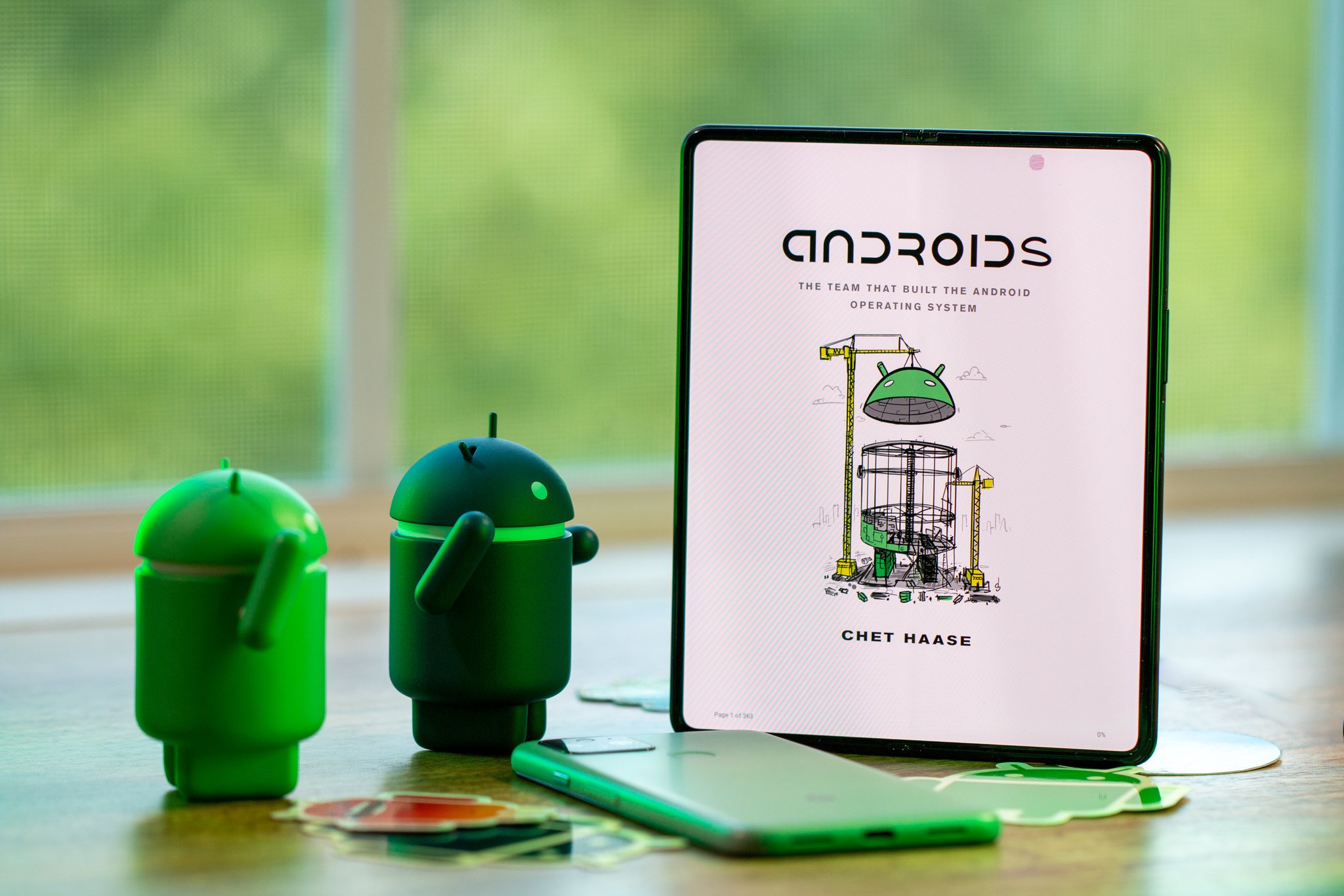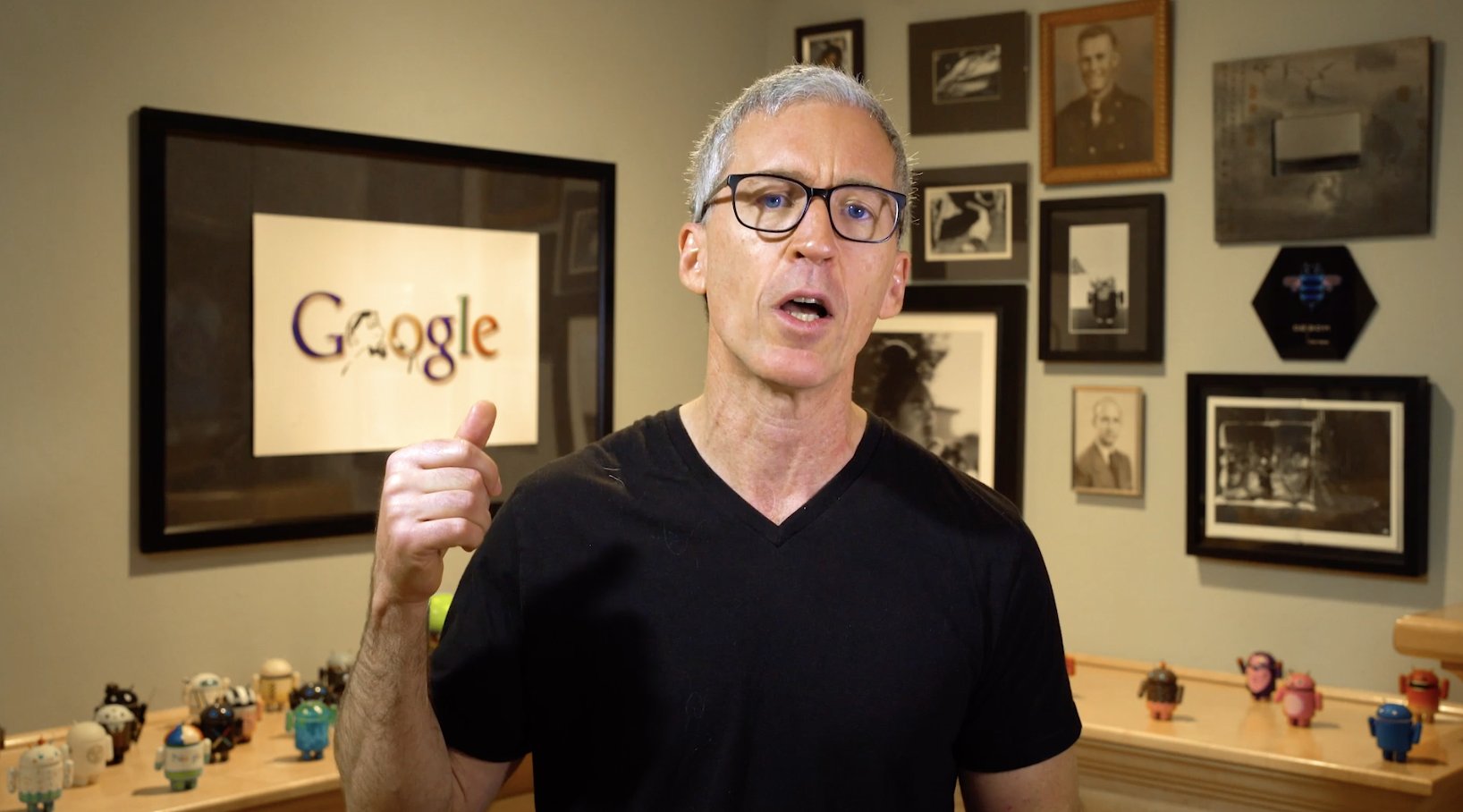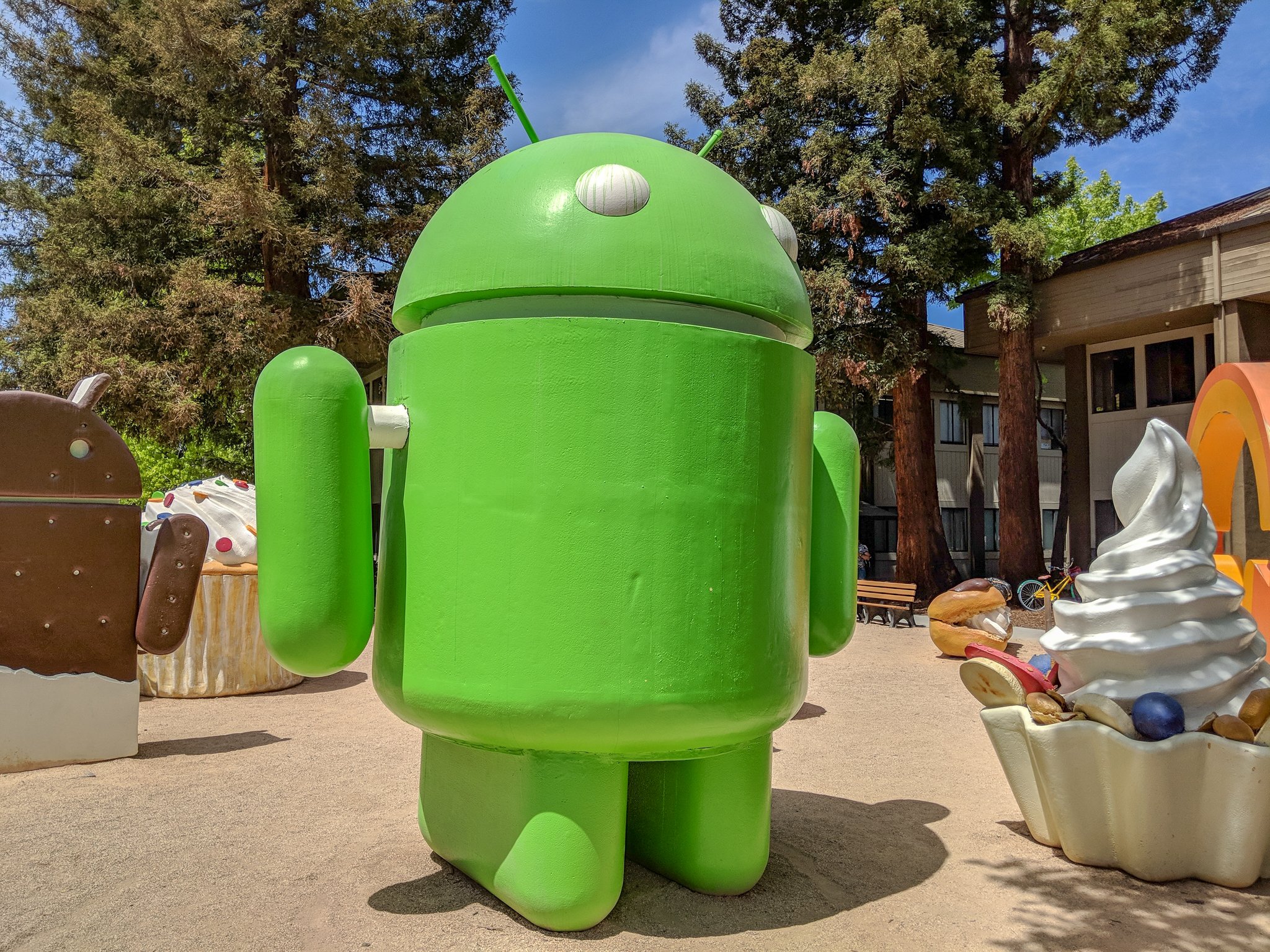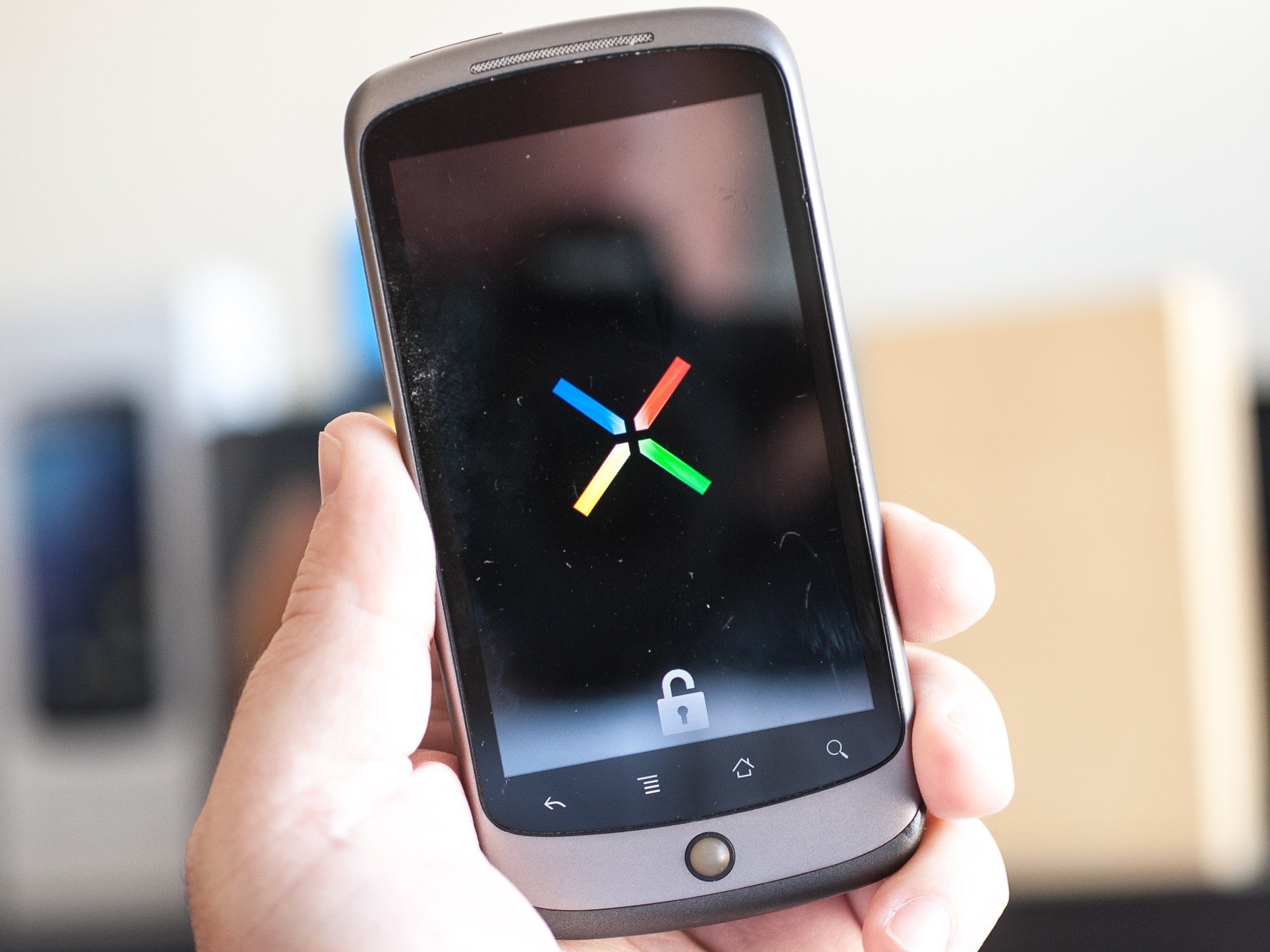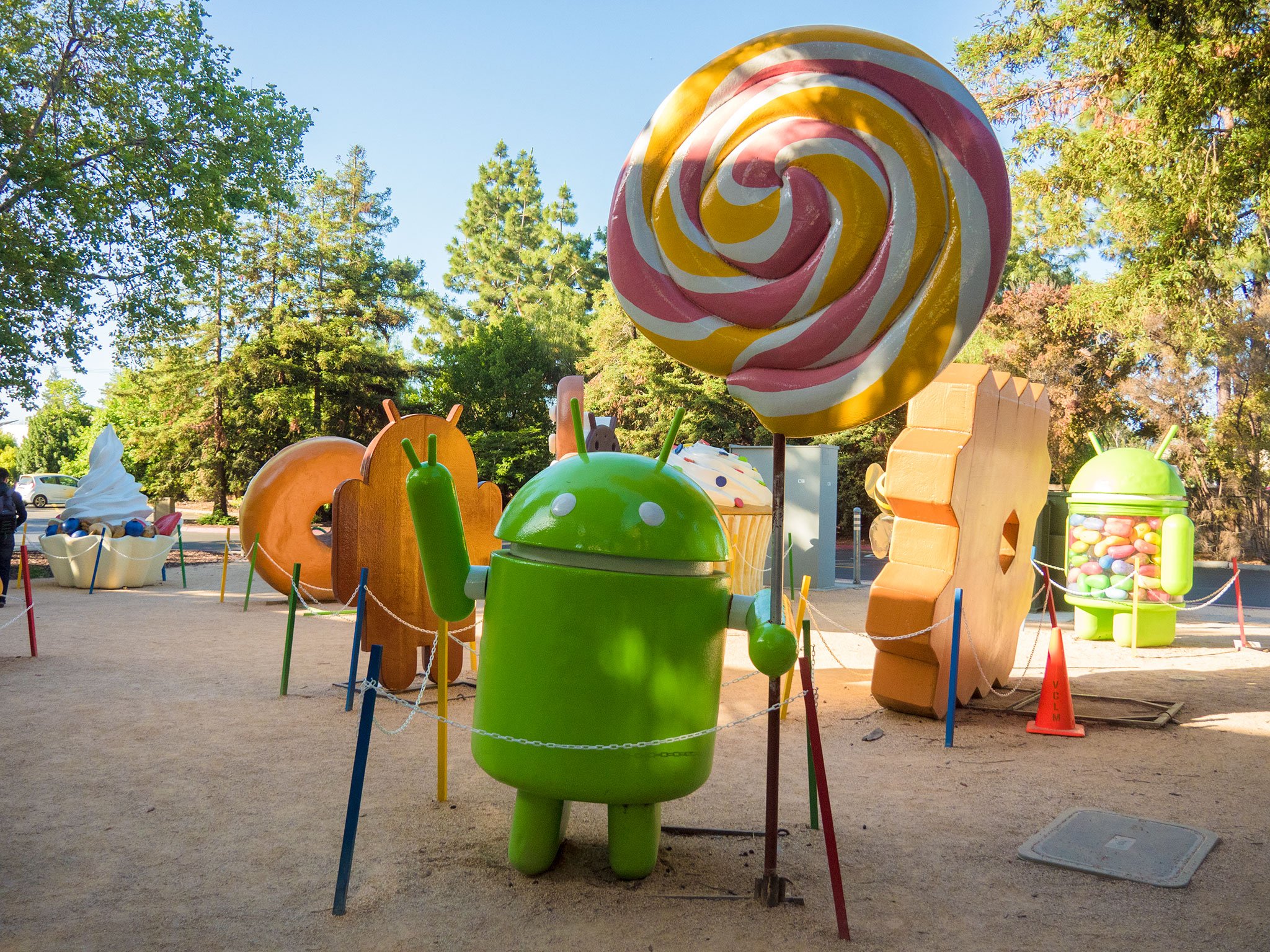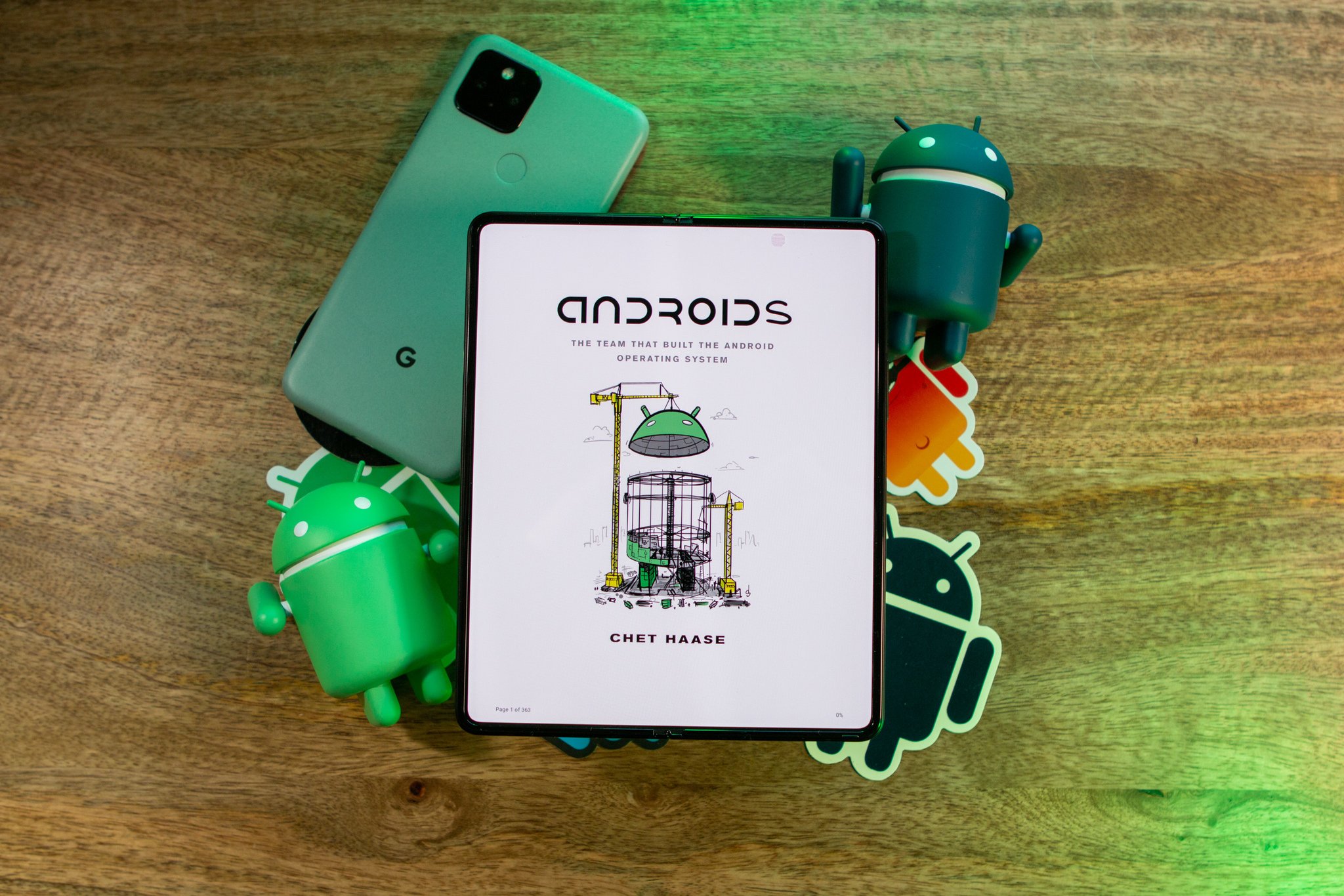Did you know Android 1.0's original codename was a famous Star Wars robot?
Earlier this month, Android engineer Chet Haase released Androids: The Team That Built the Android Operating System. It starts with the origins of the Android team — before and after Google acquired it in 2005 — up to and just past the launch of Android 1.0 in 2008. It's a fascinating story, and not just for hardcore engineers or programmers. Haase explains more about the book in this Medium post.
Most of the book dives into the nitty-gritty details of who made Android happen, as told through interviews with the engineers. From the launcher to the design to the most popular Google apps, every feature you take for granted in an Android phone was typically handled by one or two people, crunching seven days a week to finish in time.
You'll likely be surprised to learn just how isolated Android's team and start-up culture was from Google — at least until Android achieved global success. You also get an in-depth look at the plans and ideas behind phones like the HTC G1, Motorola Droid, and Nexus One.
The AC team is hyped to review this book and share our thoughts because we all have different perspectives on the book's revelations and insights into early Android. So we highly recommend you buy Haase's book and dig in for yourselves because we don't want to give all the juiciest tidbits away. Still, we couldn't help but share some of our collective thoughts on Androids and why it's worth the read.
Behind the scenes
Androids: The Team That Built the Android Operating System
$10 at Amazon $10 at Google Play Store
Read the unlikely path to Android's success
Chet Haase's self-published origins and history of early Android operating systems is a must-read for fans of Android devices. Haase interviewed virtually everyone at Android during that period, sharing their thoughts on what went right and what was plain luck. He even managed to ask Apple what it thought of Android at the time, peppered with all the near-disasters Android navigated before and after launch.
Haase: the narrator for Android's history
Jerry Hildenbrand, Senior Editor
Chet Haase is a big huge nerd. He's extremely personable, very approachable, and can be incredibly funny, which is why he's an excellent presenter for Google. But he's also a big old nerd who writes some of the stuff that makes Android so successful.
He's also the perfect author for this book. The same qualities that make Haase a great presenter turn out to be the same things that make him an excellent author. By no means is Androids some dry tome about phone software for nerds.
Haase's approachable book has enough details to satisfy Android superfans, but enough context to guide a casual reader.
The Androids book, like Haase, is personable. It's approachable. Many AC writers and readers have been interested in Android and Google long enough to have watched the book's events play out in real-time. We know the things Google has told us, the things that have leaked out, and the things still on the roadmap 12 years later. Even for those readers, it'll have plenty of new revelations.
While this is still a great book if you're that kind of superfan, it's also great for a more casual user. If you use Android and are interested in its past, you'll find this book enjoyable because it's not some techie journal for nerds. Just like its author, Androids: The Team That Built the Android Operating System is something almost all of us can relate to.
The Android story (not the Google story)
Michael Hicks, Senior Editor
Haase's fascinating historical background of Android shows how much has changed in the smartphone industry. At the time, phone specs catered fully to carriers' demands, Blackberries ruled the Earth, and no one had confidence that Android would be anything more than "vaporware" compared to the new iPhone. It'll be illuminating for the less knowledgeable (like me) and nostalgic for veterans like my colleague Jerry.
So much has changed, but Google's relationship with Android also shows how little has changed. Google had the foresight to snatch Android up when the start-up was pitching its OS to various companies and gave the team the resources to hire the people it needed. But according to Haase, most Google team members didn't seem to think Android would amount to anything. Android engineers mostly had to code apps like Gmail and Maps by themselves because the teams behind those services didn't want to get involved.
What made Android a success? I won't "spoil" the ending to this true story, but suffice to say that Android's inspired coding could only go so far. It was marketing from other companies invested in Android's open-sourced success that gave it the clout necessary to compete with iOS.
I also found it interesting to read about which phones Android engineers invested the most effort into and how it was a less popular phone that ended up paving the way to Android's future.
How likely was it that Android could have been "killed by Google?" The odds were higher than you might think.
Haase didn't make this connection, but his book made me think of the death of Stadia Games, along with all the other "Killed by Google" projects. While Google unleashed the Android staff to make an amazing operating system, it didn't commit any other company resources or help to it until Android achieved success on its own. Only then did Android become more integral to Google.
In other words, Android's success was far from inevitable. Haase's book is full of stressful anecdotes about burning servers and accidentally bricked phones, along with the kind of workplace crunch you typically see at a video game company. Reading about Android's behind-the-scenes stories — and how most Android engineers think luck and timing had to do with its success — will make anyone with a great Android phone grateful to have one.
An inspiring, unlikely success story
Jeramy Johnson, Editor
One of the things that really stuck with me throughout this book was how interconnected the (initial) team was who built Android and brought it to life. It was both fascinating and extremely cool to learn how so many of the initial key players followed each other around from job to job, employer to employer. They seemed genuinely keen on continuing to work together.
For context, most of Android's team was hired from outside Google (which was focused on search engine ads and web content at the time). Android remained a total secret, so no one interested in phone tech had reason to apply for a job at Google then. Still, the small, yet determined start-up team reached out to colleagues who worked with them on past failed phone-related projects at Danger, BeOS, PalmSource, and even Microsoft. This time, they got it right.
Android developed at warp speed, with engineers flying by the seat of their pants. And it's amazing to read all about it.
On one level, it makes sense. It's just easier to work with people you're already comfortable and familiar with, but it's also understandable because those same people were the ones who knew how to do the things that needed to get done. For the most part, it seemed like they generally got along with each other, or at least, they respected each other's talents and abilities. Stepping back a bit, I feel like that's how Android Central and our sister sites work and get along, so it was nice to see some parallel there between our team and the original Android team.
Another thing that fascinated me about Android's origin story was just how "by the seat of their pants" it all felt. The platform was developed at warp speed and on the fly, and iterations were constant and ongoing. It all sounded as if they were building the ship while sailing (sorry, I'm bad at metaphors), which is just wild to me. It all worked out in the end, but no one involved had any guarantees.
I don't know that much about software or product development, and I'm sure that the phenomena I described are not uncommon in those fields. But reading about how it all came together really gave me a better understanding of, and appreciation for, the operating system that we all know and love — Android.
The elephant in the room
Michael Hicks
I didn't know who Andy Rubin was until my colleagues warned me before starting the book. A co-founder of Android, Andy (as he's referred to in the book), comes up frequently as a decision-maker. When the team couldn't choose between using Java or C++, he made the call, and he would push for vital, last-minute features for each new Android iteration. In one small chapter, he built an actual robot in the Android office. Pretty benign stuff.
You wouldn't know from the book that former Google CEO Larry Page forced Rubin to resign in 2014 after Google learned of credible sexual misconduct allegations that he coerced an Android team member into giving him oral sex, followed later by new allegations that he ran a sex ring. Despite all that, he still received a $90 million golden parachute, which prompted Google employees to walk out when it all came to light.
Andy Rubin comes across less as Android's father and more as its executive figurehead, demanding results from an insanely talented team.
I'm not saying Haase did anything wrong by avoiding this topic or focusing much of the book on the "father" of Android. The book's timeline mostly precedes his infamous, alleged actions, and they didn't factor into Android 1.0's success or failure. In truth, the book makes him look a bit like a figurehead, demanding results but not necessarily contributing any specific feature to Android. Much more credit for the coding and success of Android is attributed to other team members like Brian Swetland, Dianne Hackborn, Hiroshi Lockheimer, and Ficus Kirkpatrick.
But, well, I won't deny that Rubin's presence cast a shadow (for me) over some of the earlier chapters focused on Android's formation. Androids makes you root for the team as a bunch of scrappy underdogs fighting against the odds to succeed. It's just hard to root for Rubin. Still, this isn't enough to ruin an altogether excellent book.
What did you think of Androids?
Once you get your hands on Androids: The Team That Built the Android Operating System, we'd love to hear what you thought of it. What was your favorite story behind its development? Did you find it to be too technical or not technical enough? And for the Android veterans out there, which of the old Android phones first convinced you to give the OS a try?
Let us know your thoughts in the comments!
Behind the scenes
Androids: The Team That Built the Android Operating System
$10 at Amazon $10 at Google Play Store
Read the unlikely path to Android's success
Chet Haase's self-published account on the origins and history of early Android operating systems is a must-read for fans of Android devices. Haase interviewed virtually everyone at Android during that period, getting their thoughts on what went right and what was just luck. He even got an inside perspective on what Apple thought of Android at the time, plus all the near-disasters Android navigated before and after launch.
Source: androidcentral
